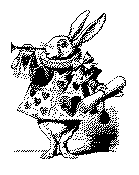


Why?
by Phil Geusz
©2001 Phil Geusz -- all rights reserved



Why?
by Phil Geusz
©2001 Phil Geusz -- all rights reserved
This is the TSAT magazine. It derives its name from that of the TSA, or Transformation Story Archive. Within these pages are found stories of endless variety; hard science fiction, sword and sorcery, fairy tales, and even entirely non-speculative tales about transformation via surgery. It's hard to name any other genre that encompasses such a wide sweep of styles, yet all are bona fide transformation tales. And transformation story fans slurp them up like candy.
So, what's the attraction?
As a fan myself, I can say with conviction that transformation stories have been one of the staples of my own life. An amazingly high percentage of my favorite works, from Double Star to Protector involve one form of TF or another. But to really find the root answer, at least for me, it's needful to look at those works I like very much which do not involve transformations.
Take Watership Down, for example. It's about rabbits, which is always a plus for me. But even more, it's about beings that are to some degree alien to us, who experience a different reality than we do. Even C.S. Forester's classic The Sky and the Forest, which is entirely about humans who are all too normal, focuses through most of its length on the feelings and attitudes of a primitive tribesman who sees things in very different ways from the so-called "modern" men. And yet at the same time, in works like these two, it is very easy to empathize with the characters, to understand their feelings and get into their heads despite their fundamental differences from us. When you are done reading, it's almost as if you have enjoyed the privilege of being someone else for a time, even though there is no form-change involved.
Personally, I think that this is the true 'root' of fascination with TF for most of us. Whether it is because we are intensely unhappy with our own lives, or because of a need to escape very thoroughly from mundane reality, we relish the virtual experience of not only being someone else, but something else. It's pure escapism in the most complete sense possible. We TF readers run with deer, hunt with lions, and die with rabbits. We become, for a time, flowers or cars or children who dance and play endlessly under the warm summer sun. For a time, in the perfect world of pure ideas, we can truly be someone other than who we are really are, something (if the artist is up to the challenge) better and more exciting than what is real. And that is, frankly, what it's all about.
As writers, we can employ TF as a metaphor, we can utilize it as a plot device, we can use it in an infinite number of ways. Transformation as a theme is the most plastic and free genre in the world; writing TF stories is like visiting an infinite beach, where story ideas lie at your feet in number as uncounted as the grains of sand. But in the end, keep in mind that your reader is using your work as an escape. Never, ever forget that as an author you are, for a time, the creator, even the veritable godhead of your reader's world. This is the true level of your challenge and of your duty. So always, always, always use TF as an escape device above all else, if you would be seen as successful. Use it as a means of exploring the new and the different and the exciting, of visiting places better and purer than what is real. This, in my most earnest opinion, is what your reader truly seeks in his stories, and what you as a writer owe him in exchange for the tremendous compliment he is paying you by reading your tales. Help him escape, and your scribblings will be received with joy.